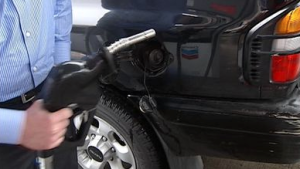Supreme Court sides with ethanol in renewable fuel debate
Courtesy of The Christian Science Monitor by David J. Unger: Renewable fuel advocates praised a Supreme Court decision Monday not to hear a challenge to higher ethanol blends of gasoline, while opponents warned of potential mechanical damage.
The Supreme Court decision comes as fuelmakers struggle to meet federal renewable fuel standards.The Supreme Court decision comes as fuelmakers find themselves up against a so-called ethanol “blend wall.” Companies struggle to meet federal renewable fuel requirements as a slow economy and more efficient cars push gasoline demand down.
 Renewable fuel advocates say the solution is to allow blenders to mix a greater amount of corn-based ethanol into gasoline in order to satisfy the federal standard, reduce the nation’s dependence on foreign oil, and help curb greenhouse gas emissions. Opponents say the higher blend gasoline can damage today’s engines and require large-scale infrastructure updates that would push up prices at the pump.
Renewable fuel advocates say the solution is to allow blenders to mix a greater amount of corn-based ethanol into gasoline in order to satisfy the federal standard, reduce the nation’s dependence on foreign oil, and help curb greenhouse gas emissions. Opponents say the higher blend gasoline can damage today’s engines and require large-scale infrastructure updates that would push up prices at the pump.
In 2011, the Environmental Protection Agency, which oversees the government’s renewable fuel standard, raised the legal volume of ethanol in commercial gasoline from 10 percent (E10) to 15 percent (E15) for use in cars and light trucks from model year 2001 and newer.
Oil industry groups challenged the legality of the EPA’s increase but the circuit court in Washington, D.C., rejected the challenge last summer. Those groups then petitioned the Supreme Court, which decided Monday not to consider the case.
“EPA approved E15 before vehicle testing was complete, and we now know the fuel may cause significant mechanical problems in millions of cars on the road today,” Harry Ng, vice president and general counsel with the American Petroleum Institute, a Washington-based trade organization, said in a statement. Mr. Ng called the decision a “big loss for consumers, for safety and for our environment.”
 The industry group hopes to repeal the EPA’s renewable fuel standard, saying it will increase gas prices by 30 percent and decrease gross domestic product by $770 billion by 2015.
The industry group hopes to repeal the EPA’s renewable fuel standard, saying it will increase gas prices by 30 percent and decrease gross domestic product by $770 billion by 2015.
Renewable fuel advocates contest that viewpoint, saying biofuels offer the consumer more choices with fewer emissions and drive economic growth in rural parts of the country.
“This is not an industry you can transport,” said Jeff Lautt, chief executive of Poet, a leading ethanol producer based in Sioux Falls, N.D. “From a jobs perspective, it’s a win-win situation.”
The debate over how much ethanol today’s cars can handle is not unlike the hand-wringing over unleaded fuel in the 1970s, Mr. Lautt said in an interview. Concerns that removing lead from fuel would wreck engines turned out to be exaggerated, Lautt said, and that’s echoed in mechanical worries surrounding E15.
The Supreme Court’s decision Monday is a big boost for a industry that benefited from the implementation of the renewable fuel standard in 2005. The rule aims to blend 36 billion gallons of renewable sources into transportation fuels by 2022.
“The uncertainty created by this lawsuit has chilled commercial activity that would provide American consumers more affordable choices at the pump,” Bob Dinneen, president and chief executive of the Renewable Fuels Association, said in a statement. “With this decision, E15 can finally become a meaningful option for more Americans.”
Category: Fuel & Oil, General Update, Green









